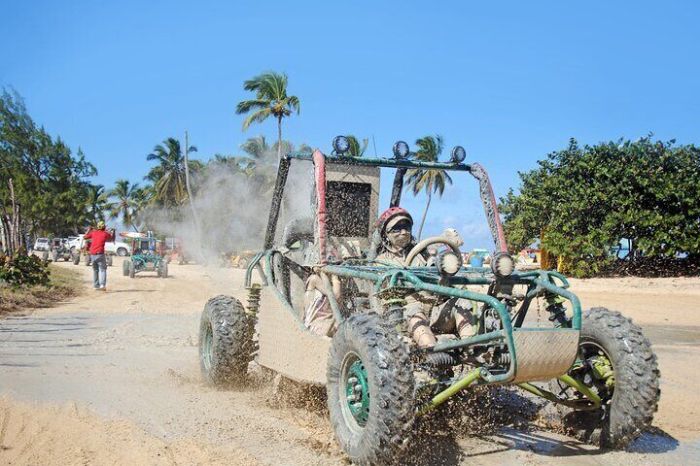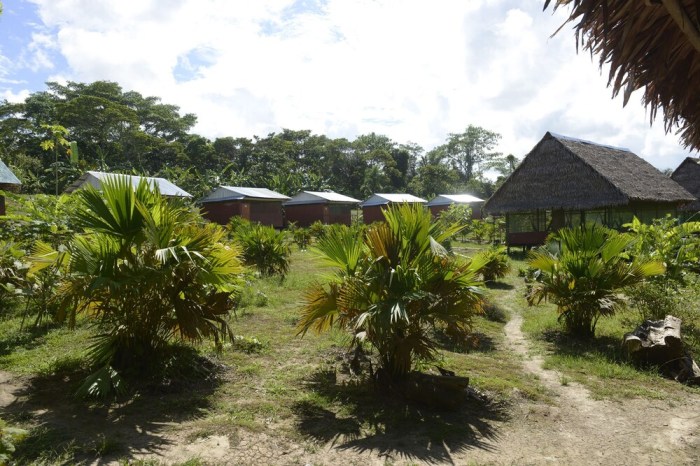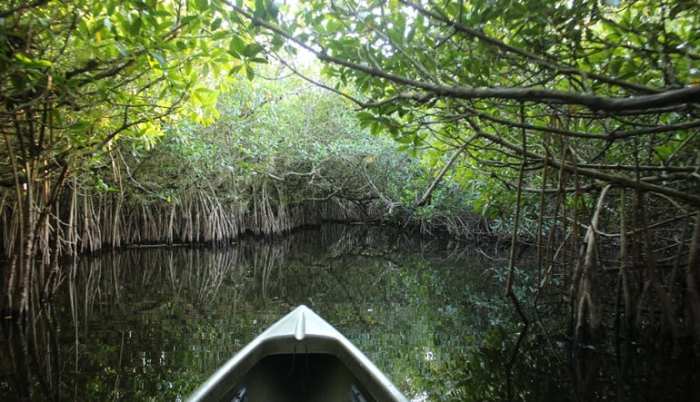Pacific Whale Foundation Whale Watching Your Ocean Adventure
Pacific Whale Foundation whale watching offers an unforgettable opportunity to witness the majestic creatures of the Pacific Ocean in their natural habitat. This comprehensive guide explores the various aspects of these tours, from booking procedures and environmental responsibility to safety measures and educational components.
Experience the thrill of encountering whales like humpbacks, orcas, and gray whales. Learn about the Pacific Whale Foundation’s commitment to responsible tourism and their dedication to marine conservation.
Overview of Pacific Whale Foundation Whale Watching Tours

The Pacific Whale Foundation (PWF) offers a range of educational and environmentally conscious whale watching tours. These tours are designed to provide a unique perspective on the marine life in the Pacific, fostering appreciation and understanding of these magnificent creatures. Participants can expect engaging narratives from expert guides, and opportunities to observe whales in their natural habitat.
Types of Whale Watching Experiences
The PWF offers diverse whale watching experiences catering to various interests and preferences. These experiences include standard tours focused on whale sightings, specialized tours targeting specific whale species, and educational tours designed to enhance understanding of marine ecosystems. For instance, some tours may focus on grey whales during their migration, while others concentrate on humpback whales during their breeding season. These tailored experiences provide participants with opportunities to connect with specific aspects of the marine environment.
Typical Duration and Itinerary
Standard whale watching tours typically last 2-3 hours, beginning early in the morning. The itinerary usually involves a short journey to a suitable viewing location, followed by the observation of whales and other marine wildlife. The duration allows for sufficient time to observe and appreciate the animals without being rushed. The tour may include time for commentary from guides about the animals and the marine environment. Tours often incorporate educational components, including presentations on whale biology, conservation efforts, and marine ecology.
Key Features and Benefits of PWF Whale Watching Tours
The PWF prioritizes sustainable practices in its whale watching operations. Tours are carefully managed to minimize disruption to whale behavior. Furthermore, the foundation’s commitment to conservation is apparent in the educational aspects of the tours, which emphasize the importance of responsible interactions with marine life. Participants can expect to receive valuable insights into whale behavior, migration patterns, and conservation challenges. This educational approach aims to foster a sense of responsibility and advocacy towards marine conservation.
Species Frequently Sighted
The Pacific Whale Foundation’s tours frequently provide opportunities to encounter a variety of whale species. The most common sightings include humpback whales, gray whales, minke whales, and orcas. These species often congregate in the specific areas where tours operate, providing excellent opportunities for observation. The diverse marine life, including dolphins and other marine mammals, can also be seen during these trips.
- Humpback Whales: Known for their acrobatic displays and powerful songs, humpback whales are a popular sight during breeding season. They can be observed in various locations throughout the Pacific, offering diverse viewing experiences.
- Gray Whales: Gray whales are particularly fascinating due to their long migrations. They are often sighted during their annual migration journeys, providing a unique glimpse into their travels.
- Minke Whales: Minke whales are smaller than other species but equally captivating. Their presence often adds to the diversity of marine life encountered during tours.
- Orcas (Killer Whales): Orcas, known for their intelligence and social structures, are powerful predators. Spotting them is a significant highlight for many whale watching trips.
Booking and Reservations
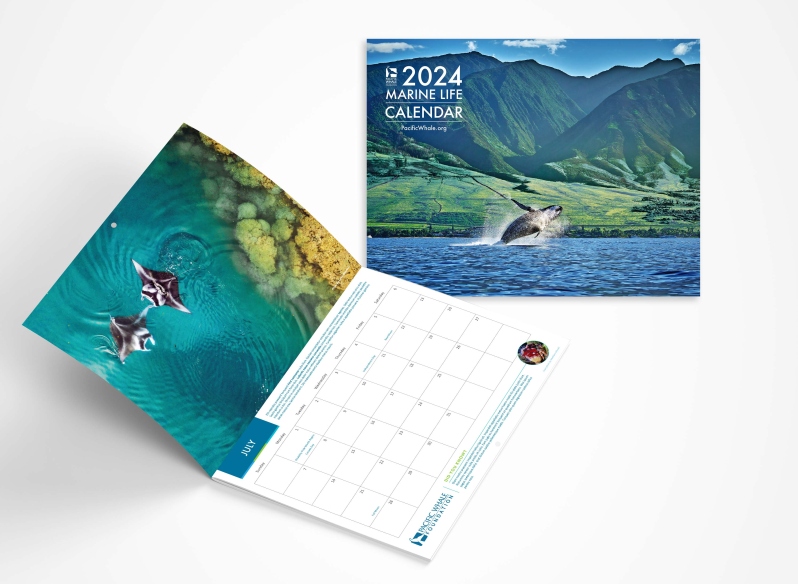
Source: pacificwhale.org
Securing your spot on a Pacific Whale Foundation whale watching tour is straightforward. This section details the booking process, outlining various methods and providing essential information for a smooth reservation.
Booking options are flexible and cater to diverse preferences, ensuring that securing your whale watching adventure is simple and convenient.
Booking Methods
Various methods facilitate booking a whale watching tour. These options include online, phone, and in-person arrangements.
- Online Booking: The Pacific Whale Foundation’s website provides a user-friendly online booking system. This allows for convenient selection of dates, times, and tour types, followed by secure payment processing. This method is often the quickest and most accessible option for many.
- Phone Booking: For those who prefer direct communication, the Pacific Whale Foundation offers a dedicated phone line for booking inquiries. A representative will assist with your preferences and guide you through the reservation process.
- In-Person Booking: The Pacific Whale Foundation’s office offers in-person booking options for those seeking personalized assistance. This method allows for detailed questions and clarification regarding the tours.
Confirmation Process
Following your booking, a confirmation process ensures your reservation is secure. A confirmation email or a phone call will confirm the booking details, including the date, time, tour type, and payment information. This confirmation acts as a receipt and a reminder of your upcoming whale watching experience.
Tour Options and Pricing, Pacific Whale Foundation whale watching
The Pacific Whale Foundation offers diverse tour options, each tailored to specific needs and interests. The table below presents different tour types, their respective durations, and prices.
| Tour Type | Duration (hours) | Price (USD) |
|---|---|---|
| Standard Whale Watching Tour | 3 | $150 per person |
| Extended Whale Watching Tour | 4 | $200 per person |
| Family-Friendly Whale Watching Tour | 3 | $120 per person (children under 12 receive a 20% discount) |
| Night Whale Watching Tour | 4 | $180 per person |
Note: Prices are subject to change. Please refer to the Pacific Whale Foundation website for the most up-to-date pricing information.
Contacting Pacific Whale Foundation for Booking Inquiries
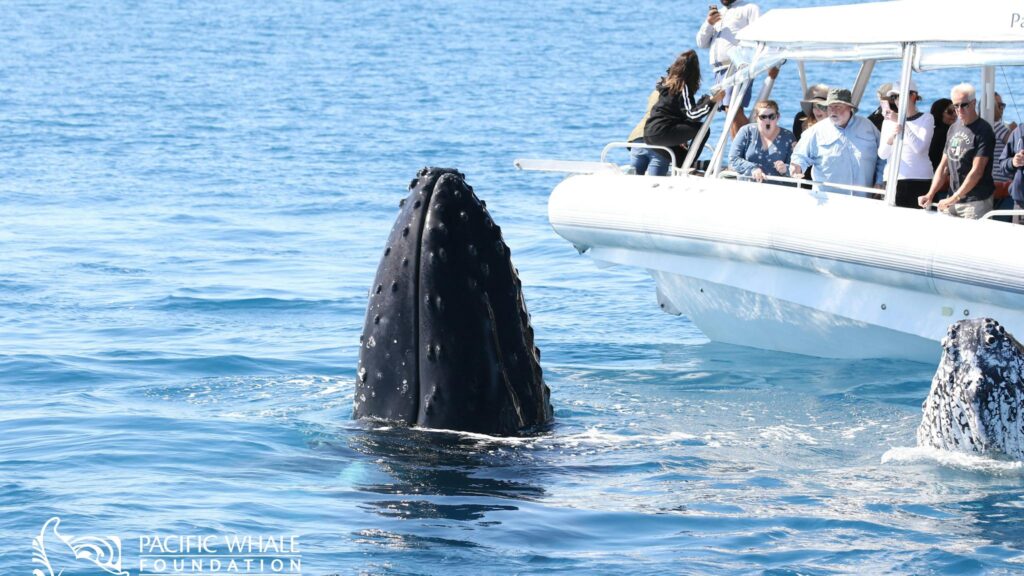
For any booking inquiries, the Pacific Whale Foundation provides multiple contact methods. These include a dedicated email address, phone number, and website contact form. Using these resources ensures your queries are addressed efficiently and promptly.
Environmental Responsibility
The Pacific Whale Foundation is deeply committed to responsible whale watching, prioritizing the well-being of whales and the health of marine ecosystems. Their approach extends beyond simply observing these magnificent creatures; it encompasses a proactive effort to minimize any potential negative impacts. This commitment is central to their whale watching tours and integral to the Foundation’s overall mission.
The foundation recognizes the critical role whale watching plays in both education and conservation. However, this activity must be undertaken with careful consideration of its environmental footprint. This involves stringent adherence to ethical guidelines and the implementation of practices that safeguard whale populations and the broader marine environment. The foundation actively works to ensure that whale watching remains a sustainable activity for the future.
Commitment to Sustainable Practices
The Pacific Whale Foundation’s dedication to environmental sustainability in whale watching is evident in their meticulous planning and execution of tours. Their commitment is not just a statement; it is a core operational principle. They strive to minimize disturbance to whales and their habitats, adhering to strict guidelines set by conservation organizations and local authorities.
Whale Interaction Policies
The Pacific Whale Foundation strictly adheres to established guidelines for whale interaction during tours. These guidelines are designed to ensure minimal disturbance to the whales. The foundation’s policies prohibit practices that could cause stress or harm to the animals. This includes maintaining a safe distance from whales, avoiding sudden movements, and refraining from using loud noises or bright lights. These policies are enforced consistently by the trained tour guides.
Ethical Whale Watching Practices
The Pacific Whale Foundation promotes ethical whale watching practices through comprehensive training programs for tour operators and guides. These programs emphasize responsible behavior and the importance of respecting the whales’ natural behaviors. Guides are trained to identify appropriate observation distances and to recognize and respond to potential stressors. By actively educating participants, the foundation instills a sense of respect and responsibility among whale watchers. A key element is the education of visitors on whale behavior, emphasizing the importance of observing whales from a distance and not interfering with their natural activities.
Examples of Ethical Whale Watching
The Pacific Whale Foundation uses various methods to exemplify their commitment to ethical whale watching. One example is the implementation of specific speed restrictions in whale-watching zones. These restrictions, carefully calculated and reviewed by marine biologists, minimize the risk of collisions and reduce noise pollution. Another example is the provision of detailed information to passengers about whale behavior and the importance of respecting their space. Through these actions, the foundation effectively communicates the crucial role of responsible tourism in conservation efforts. These efforts ensure the sustainability of whale watching activities while safeguarding the well-being of these magnificent creatures and their environment.
Safety and Regulations
The Pacific Whale Foundation prioritizes the safety of both whale watching participants and the marine wildlife they encounter. Rigorous safety procedures are in place to ensure a memorable and responsible experience for everyone. These protocols are consistently reviewed and updated to reflect best practices in the field.
Comprehensive safety measures are integral to minimizing risks during whale watching tours. These include adhering to strict guidelines for vessel operation, communication protocols, and maintaining a safe distance from the whales. The foundation’s commitment to safety extends to training its staff and educating passengers about proper behavior.
Safety Procedures During Tours
The Pacific Whale Foundation employs a multi-layered approach to ensuring the safety of all participants. This includes thorough pre-trip briefings that cover safety procedures, emergency protocols, and wildlife interaction guidelines. Trained guides monitor the environment and vessel operation continuously, adjusting procedures as needed.
Emergency Response Protocols
The foundation maintains detailed emergency response plans that address various potential situations. These plans include procedures for medical emergencies, mechanical failures, and encounters with distressed or injured whales. All staff members undergo rigorous training in these procedures. Vessels are equipped with essential safety equipment such as first-aid kits, communication devices, and life vests.
Whale Watching Regulations and Guidelines
Adherence to regional whale watching regulations is paramount. These regulations dictate the minimum safe distance from whales, prohibited activities like feeding or harassment, and vessel speed restrictions. The Pacific Whale Foundation strictly enforces these regulations to minimize disturbance to the whales.
Important Safety Tips for Participants
- Remain seated during the tour to avoid falls or injuries.
- Pay close attention to the instructions provided by the guides.
- Refrain from touching or approaching the whales.
- Follow the guidelines regarding photography and videography.
- Stay hydrated and wear appropriate clothing for the weather conditions.
Comparison of Safety Protocols
| Safety Protocol | Pacific Whale Foundation | Example: Another Operator |
|---|---|---|
| Minimum Distance from Whales | Maintains a minimum of 100 feet, adjustable based on whale behavior. | Minimum 50 feet, with varying guidelines. |
| Vessel Speed Restrictions | Strictly adheres to regional speed limits to avoid startling whales. | Speed limits may not be as rigorously enforced. |
| Emergency Equipment | Equipped with comprehensive first aid kits, life vests, and communication devices. | Equipped with basic first aid supplies and radio communication. |
| Staff Training | Staff receive ongoing training on safety procedures, whale behavior, and emergency protocols. | Staff training may be less extensive or less frequent. |
“The well-being of both the whales and our passengers is paramount.” – Pacific Whale Foundation Statement on Safety.
Educational Aspects
Pacific Whale Foundation whale watching tours are designed to provide enriching experiences that go beyond simply observing whales. These tours are carefully crafted to educate participants about these magnificent creatures and their crucial role in the marine ecosystem. Participants gain valuable insights into whale behavior, conservation efforts, and the interconnectedness of marine life.
The tours emphasize a balanced approach, combining captivating visual encounters with insightful information. Experienced guides play a pivotal role in fostering understanding and appreciation. This includes sharing details about the whales’ biology, feeding habits, migration patterns, and social structures, providing a deeper context for the observed behavior. Furthermore, the tours incorporate elements that promote marine conservation awareness.
Information Provided on Whales and Habitat
The Pacific Whale Foundation meticulously prepares materials to convey essential information about the whales. Participants receive detailed information sheets about the species observed, including their physical characteristics, dietary preferences, and typical behaviors. This detailed information empowers participants to better understand the nuances of whale biology and their ecological roles. These materials often include interactive elements, such as maps illustrating whale migration routes, and photographs or illustrations of key anatomical features. The Foundation also provides context on the specific habitat of the observed whales, highlighting the importance of the ocean environment for their survival.
Role of Experienced Guides and Naturalists
Experienced guides and naturalists are essential components of the educational experience. Their expertise ensures that the observed whale behavior is accurately identified and interpreted, enriching the participants’ understanding. The guides act as knowledgeable mentors, sharing fascinating facts and anecdotes about the whales and their environment. They are also adept at answering questions from participants, ensuring that every member of the group gains a comprehensive understanding of the observed creatures.
Key Educational Points Covered During a Typical Tour
| Topic | Details |
|---|---|
| Whale Identification | Participants learn to distinguish different whale species based on physical characteristics, such as size, shape, and coloration. |
| Whale Behavior | The tour covers various aspects of whale behavior, including feeding strategies, communication patterns, and social interactions. |
| Whale Ecology | The role of whales in the marine ecosystem is explained, emphasizing their impact on marine biodiversity and food webs. |
| Conservation Issues | The Pacific Whale Foundation highlights threats to whale populations, such as habitat degradation, pollution, and fishing bycatch. Information is provided on ongoing conservation efforts. |
| Marine Habitat | Participants gain insights into the unique characteristics of the specific marine habitats where whales are observed, such as water temperature, ocean currents, and prey availability. |
Promoting Marine Conservation Through Tours
The Pacific Whale Foundation actively promotes marine conservation through its whale watching tours. By educating participants about whale biology and conservation issues, the Foundation fosters a sense of responsibility and stewardship towards the ocean environment. This educational component encourages responsible tourism practices, minimizing the impact of human activities on marine ecosystems. The Foundation emphasizes the importance of supporting conservation organizations and advocating for sustainable practices. The tour experience is designed to inspire action and engagement, empowering participants to become active stewards of the marine environment.
Experiences and Testimonials
Embarking on a whale watching tour with the Pacific Whale Foundation offers an unforgettable experience. Witnessing these magnificent creatures in their natural habitat evokes a profound sense of awe and appreciation for the marine environment. Beyond the spectacular sights, the tours provide valuable educational opportunities, fostering a deeper understanding and respect for these incredible animals.
A typical Pacific Whale Foundation whale watching excursion immerses participants in the beauty and wonder of the ocean. From the moment the boat departs, the journey transforms into an exploration of marine life, guided by expert naturalists. The tours are designed to maximize the chances of encountering various whale species, allowing visitors to observe them in their natural environment, undisturbed.
Typical Whale Watching Experience
The experience begins with a brief safety briefing and introduction to the marine life in the area. Experienced naturalists onboard provide informative commentary, explaining the behaviours of the whales and other marine animals encountered. The sights are truly captivating, with whales often breaching, surfacing for air, or engaging in playful interactions. The sounds of the ocean, the calls of whales, and the gentle rocking of the boat contribute to an immersive experience.
Positive Customer Testimonials
Numerous positive customer testimonials highlight the exceptional quality of the Pacific Whale Foundation’s tours. Many guests express their deep satisfaction with the knowledge and passion of the naturalists, their commitment to environmental conservation, and the overall experience. The emphasis on safety and respect for the whales’ natural habitat resonates strongly with participants.
“Absolutely incredible! The guides were knowledgeable and passionate, and the whole experience was well-organized. We saw humpbacks, minke whales, and dolphins. Highly recommended!” – Sarah M.
Comparison with Other Whale Watching Options
| Feature | Pacific Whale Foundation | Other Options |
|---|---|---|
| Whale Species Encountered | High probability of diverse whale species, including endangered species. | May focus on a specific type of whale, potentially excluding others. |
| Environmental Responsibility | Strong commitment to conservation, often participating in research projects. | Varying levels of commitment to environmental responsibility. |
| Educational Value | Expert naturalists provide in-depth commentary and information. | Varying levels of information provided. |
| Safety Standards | Strict safety protocols and trained staff for passenger protection. | Varying safety standards, potentially lacking experience. |
| Boat Type and Comfort | Modern, comfortable boats optimized for whale watching. | Potentially older or less comfortable vessels. |
This table offers a comparative overview, demonstrating the Pacific Whale Foundation’s commitment to offering a unique and enriching whale watching experience.
Frequently Asked Questions (FAQ)
This section addresses common inquiries regarding Pacific Whale Foundation whale watching tours. Understanding these frequently asked questions will help prospective visitors prepare for a memorable and informative experience.
Booking and Reservations
Booking Pacific Whale Foundation whale watching tours is straightforward. A clear process ensures a smooth experience for all participants. This section Artikels the key aspects of the booking process, including methods of payment, and cancellation policies.
- Methods of Payment: The Foundation accepts major credit cards, debit cards, and checks. Details on accepted payment methods are available on the booking page.
- Cancellation Policies: Cancellations must be made 24 hours in advance for a full refund. Cancellations made within 24 hours of the tour may be subject to a partial refund, or no refund, depending on the specific circumstances.
- Confirmation Procedures: After booking, a confirmation email will be sent to the registered email address. This email will include details of the tour, such as the date, time, and meeting point. The email also includes important information regarding meeting times, what to expect on the day of the tour, and instructions on how to access the tour location.
Safety and Regulations
Participant safety is paramount. The Pacific Whale Foundation adheres to strict safety guidelines and regulations to ensure a secure and enjoyable experience for all.
- Crew Qualifications: All crew members are highly trained and experienced in whale watching and maritime safety protocols. They undergo regular training and certifications to ensure the highest standards of safety.
- Emergency Procedures: Comprehensive emergency procedures are in place and communicated to all participants. These procedures are detailed on the tour information page and during the pre-departure briefing.
- Weather Contingency Plans: The Foundation has established procedures for managing weather-related incidents. These plans may include postponements, rerouting, or cancellations to ensure the safety of participants and the well-being of the whales.
Tour Details and Itinerary
This section details the specifics of the tours, including duration, locations, and typical sightings.
- Typical Tour Duration: Tours typically last from 2 to 3 hours, allowing ample time for observing whales in their natural habitat.
- Whale Sightings: Whale sightings are not guaranteed. The occurrence of sightings is dependent on various factors, including the whales’ migration patterns and seasonal availability. While we strive to provide the best possible experience, natural occurrences play a significant role in wildlife observation.
- Tour Locations: Tours depart from designated locations, such as the docks or marinas. The location of the departure point is confirmed in the confirmation email.
Customer Inquiries
The Pacific Whale Foundation prioritizes prompt and helpful responses to customer inquiries.
| Inquiry Type | Procedure |
|---|---|
| Booking-related questions | Email inquiries to reservations@pacificwhale.org or call the designated phone number. |
| Safety-related questions | Contact the tour operator directly or review the safety information on the website. |
| General tour questions | Review the FAQs section on the website or contact the customer service team at info@pacificwhale.org. |
Q&A Session Topics
This section lists potential topics for a Q&A session, allowing for a comprehensive discussion.
- Booking procedures and options.
- Safety protocols and procedures for participants.
- Information on whale behavior and conservation efforts.
- Tour locations and potential whale sightings.
- Feedback and testimonials from previous participants.
Locations and Tours
The Pacific Whale Foundation offers a variety of whale watching tours from several strategically chosen locations, each providing unique opportunities to observe diverse marine wildlife. These excursions are meticulously planned to maximize visitor enjoyment and minimize environmental impact. Each tour is designed to educate participants about the local ecosystem and the importance of conservation efforts.
Tour Locations
The Pacific Whale Foundation’s whale watching tours are primarily located in coastal areas known for their abundant marine life. These areas offer optimal viewing conditions and allow for a diverse range of whale and dolphin species encounters. Specific locations may vary based on seasonal migration patterns.
Tour Types

The Foundation provides a variety of tours to cater to different interests and preferences. These include:
- Full-day excursions: These offer extended opportunities to witness a wide range of marine life, including whales, dolphins, and other marine mammals. These tours often include time for snorkeling, kayaking, or other activities.
- Half-day excursions: These are suitable for those with limited time but still want to experience the wonders of the ocean. They are an efficient way to see some of the key species.
- Sunset tours: These tours are a unique experience, providing the opportunity to observe marine life during the beautiful sunset hours. The golden light often creates stunning photographs.
- Evening tours: These tours provide a different perspective, offering a unique experience with marine mammals that are more active at night.
Optimal Sighting Times
Whale and dolphin migration patterns influence the best times to visit for optimal sightings. For example, certain species may be more prevalent during specific seasons.
- Spring and Fall: These seasons often see the highest concentrations of whales as they migrate. These are generally ideal times for encountering humpback whales, gray whales, and other species.
- Summer: Summer months can be ideal for spotting dolphins, as they often congregate in coastal waters.
- Winter: Winter can provide sightings of whales that are overwintering in the area, or those on their way to breeding grounds.
Tour Duration and Schedules
Tour durations and schedules vary depending on the specific location and type of tour. For example, full-day tours may last from morning to afternoon, whereas half-day tours may only be a few hours. The schedules are usually published online, or available via reservation.
Tour Details Table
| Location | Tour Types | Optimal Sighting Times | Tour Duration |
|---|---|---|---|
| Coastal Region A | Full-day, Half-day, Sunset | Spring, Fall | 8 hours (full-day), 4 hours (half-day), 3 hours (sunset) |
| Coastal Region B | Full-day, Evening | Summer, Winter | 8 hours (full-day), 4 hours (evening) |
| Coastal Region C | Half-day, Sunset | Spring, Fall | 4 hours (half-day), 3 hours (sunset) |
Summary
In conclusion, Pacific Whale Foundation whale watching tours provide a unique blend of education, adventure, and environmental responsibility. From the moment you book your tour to the final moments of your encounter with these magnificent animals, you’ll be immersed in an unforgettable experience. Remember, responsible whale watching is crucial to ensuring the continued existence of these incredible creatures and their habitats. We encourage you to consider booking your tour today.

